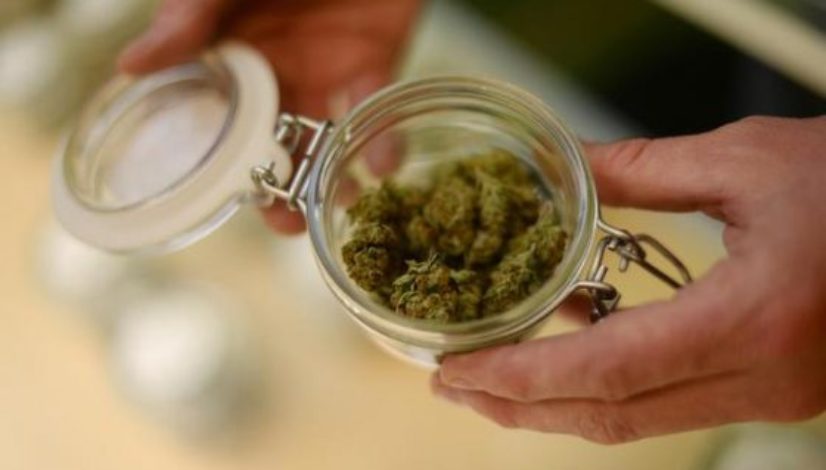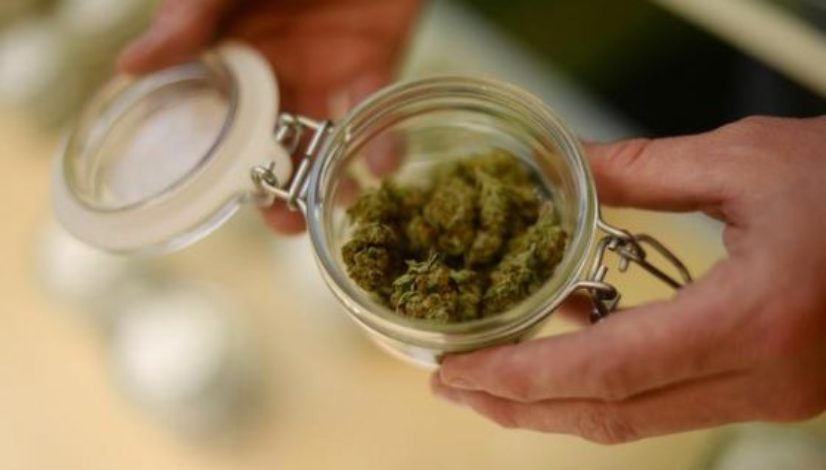Michigan marijuana activists feeling legalization momentum

Published: Nov 16, 2017, 9:55 am • Updated: Nov 16, 2017, 1:45 pm
By Bill Laitner, Detroit Free Press
Detroit — Not all is bliss for Michigan’s marijuana activists and stoners — drug busts of pot growers and their criminal trials haven’t let up — yet marijuana is having a good year here, and a very good month of November.
This week, leaders of a statewide campaign to put a legalization question on Michigan ballots in November 2018 said they’d gathered at least 360,000 signatures, well more than the 252,523 required by law.
The Committee to Regulate Marijuana Like Alcohol now lacks only about $30,000 to pay off a signature-collection vendor before its leaders can submit truckloads of signed petitions to the Michigan Secretary of State, a move they expect to make before Thanksgiving, said spokesman Josh Hovey, with the Lansing-based public-relations firm Truscott Rossman.
And last week, marijuana was a surprise winner at the polls in Detroit, where, despite strong opposition from Detroit City Council members and church leaders, voters passed two ballot measures by wide margins to roll back the city’s tough new strictures on medical marijuana shops.
The city’s tough ordinance was forcing a domino-like series of closures of scores of the shops, called dispensaries, outlawing any that were near parks, churches, schools and day care centers. Those who favored the closures said Detroit had become an unintended hub of nonresidents flocking to open medical marijuana shops, in part because suburbs and suburban police refused to allow the dispensaries.
But voters undid the strict ordinance, and apparently froze the process of closures, with a 60% margin of yes votes on Proposal A to allow more “facilities” — that is, dispensaries; and a 58% yes on Proposal B to ease zoning rules on the businesses.
At a public hearing scheduled for 7 p.m. Thursday at Detroit’s Cobo Center, aimed at discussing how the ballot measures are to be implemented, the opponents — drawn from the coalition of city leaders, church leaders and neighborhood organizers who championed the new ordinance — planned to show their disapproval of the ballot measures’ success, according to online forums.
Related stories
- Michigan pro-legalization group submits 100K more signatures than needed to get on 2018 ballot
- Detroiters vote to expand options for medical marijuana businesses
- Michigan reverses stance, will let medical marijuana shops stay open
- Michigan township sets up medical marijuana industrial park for growing, producing, testing
- Nearly 2,000 Michiganders sign up for medical marijuana biz license classes
“Any and everyone needs to attend this meeting in opposition of this expansion of medical marijuana centers in our community.
“We need, community organizations, prevention advocates, churches, schools personnel and leadership, day care centers, Realtors, business owners, to flood this meeting,” wrote Detroiter DeBorah Omokehinde.
But those who support wider access to medical marijuana, as well as to recreational marijuana, said in online forums that they plan to attend and voice a counterpoint. They included former Detroit resident Tim Beck, a retired health insurance executive and longtime promoter of legal cannabis, who said he planned to drive three hours from his retirement home west of Kalamazoo to attend the Cobo Center hearing.
“Hells bells yes, I’m going,” Beck said Wednesday.
“Some of these folks just can’t get it into their heads — they don’t represent the voters of Detroit. I’m going to read them the riot act,” said Beck, a frequent speaker on television and radio talk shows about marijuana issues.
Marijuana’s political momentum in Michigan also surged this month in other ways:
– At a bipartisan debate held Tuesday night in Ypsilanti, five candidates for the governor’s seat in Lansing all spoke in favor of legalizing marijuana, said Lansing attorney Jeff Hank, a strong supporter of legalized cannabis.
Four Democratic gubernatorial candidates — Gretchen Whitmer, Abdul El-Sayed, Shri Thanedar and Bill Cobbs — were joined by Republican Evan Space for the discussion. Hank said Republican candidate and Attorney General Bill Schuette was invited but did not respond. Lt. Gov. Brian Calley was not invited, Hank said, because Calley has yet to announce.
“When five main candidates are talking about supporting the (legalization) proposal, we’ve gone mainstream,” Hank said after the event.
– Last week’s election results in Oakland County sent at least a symbolic message of protest against the county’s aggressive police raids of medical-marijuana growers, processors and dispensary operators. In Keego Harbor and Lathrup Village, ballot measures were approved forbidding police engaged in drug raids and other criminal investigations from seizing the homes, businesses, cash, bank accounts, vehicles and other property until authorities obtain convictions.
The passage of the measures — a similar one passed last year in Orchard Lake — can’t block the county’s narcotics investigators and State Police from seizing property, but it will apply to local police while sending the others a message about how voters feel, said Peter Trzos, 36, of Keego Harbor, who campaigned for the measures.
Trzos operated three dispensaries in Oakland County until they were raided and padlocked in 2013, Trzos said. He faces nine felony charges but has not been convicted on any of the charges, Trzos said Wednesday.
– In other states last week, governors elected in New Jersey and Virginia are expected to push for easing laws on marijuana if not allowing possession outright.
Opponents of marijuana’s spreading acceptance have pledged this month to continue efforts to educate voters and lawmakers about the risks of letting the drug become legal.
Downriver’s SUDDS Coalition, which works in 13 communities to keep youths from abusing alcohol, tobacco and illegal drugs, is soon to launch an awareness campaign on social media and billboards about the dangers of marijuana, said Bethany Sanford, a community organizer with SUDDS, which stands for Stop Underage Drinking/Drugs Downriver.
“Between marijuana and the opioid prescription drugs, these have been big focuses for SUDDS this year,” Sanford said. A key message of the group is that marijuana is just as bad as alcohol and other drugs when it comes to deleterious long-term effects on young people because adolescent brains are still developing, she said.
SUDDS and other groups fear that legalizing cannabis will allow more access by young abusers. Any gain in tax revenues from legalization “isn’t worth it,” Sanford said.
Michigan’s legalization question, aimed for November 2018 ballots, would try to keep young people away from marijuana in the same way that state law forbids the consumption of alcohol by anyone under 21.
The proposal would let those 21 and older use recreational marijuana in private homes. It would steer the resulting tax revenues to public schools and road projects, as well as to the coffers of local communities but only to those that “opt in” to the proposal by allowing marijuana cultivation, sale and related business activity within their borders, campaign leaders said.
The measure’s provisions for cultivation, sale and other businesses such as testing and transport were written to comply with a new state law on medical marijuana, which on Dec. 15 will begin to accept applications for marijuana business licenses.
Contact Bill Laitner: [email protected]
Information from Detroit Free Press
Topics: activism, ballot initiatives, detroit, legalization, Michigan




